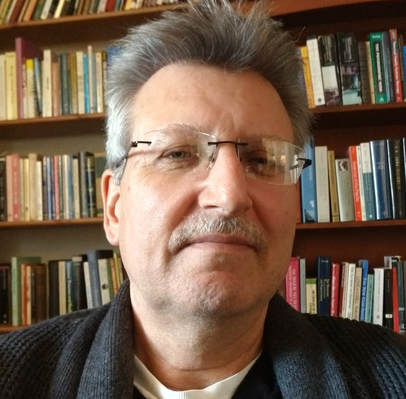
Do you need someone compassionate
to help you through the challenging issues
of your life?
Steve Harris, PhD
Psychologist & Psychotherapy
Individual & Relational Therapy
FAQs
|
What is a Psychologist?
Practicing psychologists have the professional training and clinical skills to help people learn to cope more effectively with life issues and mental health problems. After years of graduate school and supervised training, they become licensed by their states to provide a number of services, including evaluations and psychotherapy. Psychologists help by using a variety of techniques based on the best available research and consider somone's unique values, characteristics, goals and circumstances. Psychologists with doctoral degrees (either a PhD, PsyD or EdD) receive one of the highest levels of education of all health care professionals. How Does a Psychologist Help? Practicing psychologists use an assortment of evidence-based treatments to help people improve their lives. Most commonly, they use therapy (often referred to as psychotherapy or talk therapy). There are many different styles of therapy, but the psychologist will choose the type that best addresses the person’s problem and best fits the patient’s characteristics and preferences. How Are Psychologists Trained? A doctoral degree to practice psychology requires at least 4-6 years of full-time study after completing an undergraduate degree. Coursework includes areas such as ethics, statistics, individual differences and the biological, cognitive-affective and social bases of behavior, as well as specific training in psychological assessment and therapy. While in graduate school, psychology students may also participate in research and teaching. A one-year full-time supervised internship is required prior to graduation and in most states an additional year of supervised practice is required before licensure. Psychologists must pass a national examination and addition examination specific to the state in which they are being licensed. Once licensed to practice, psychologists must keep up their knowledge, which is demonstrated by earning several hours of continuing education credits annually, as required by their state’s license and regulations. I keep hearing that "evidenced based therapy" is the only legitimate therapy. Doesn't that make other therapies less legitimate or not helpful? Actually, evidenced based therapies might be helpful, but the "evidence" is based on very biased research. The American Psychological Association (APA) commissioned a "blue-ribbon" panel of experts to review the scientific literature. This commission concluded that the therapies that are being promoted and marketed as "evidenced based" are not more effective that other forms of psychotherapy. In 2013, the APA issued a formal policy resolution saying as much. If you want to know more about this matter, please review this very helpful article which contains much more than opinions, but a helpful review of some of this body of research: Bamboozled by Bad Science Isn't Cognitive-Behavioral Therapy (CBT) more "evidence based" as a successful treatment than Psychodynamic/Psychoanlyatic Psychotherapy? After an extensive review of many studies (called a meta-analyses) comparing psychodynamic psychotherapy CBT, Jonathan Shedler concludes with exhaustive statistical analyses, "empirical evidence supports the efficacy of psychodynamic therapy. Improvement for psychodynamic therapy are as large as those reported for other therapies that have been actively promoted as 'empirically supported' and 'evidence based.' In addition, patients who receive psychodynamic therapy maintain therapeutic gains and appear to continue to improve after treatment ends. Finally, nonpsychodynamic therapies may be effective in part because the more skilled practitioners utilize techniques that have long been central to psychodynamic theory and practice (relationships variables such as good rapport). The perception that psychodynamic approaches lack empirical support does not accord with available scientific evidence and may reflect selective dissemination of research findings." (Click Here >) Shedler, J. (2010). The efficacy of psychodynamic psychotherapy. American Psychologist. Vol. 65, 98-109. Is discussing the past in psychotherapy really necessary? To paraphrase W. Bion, therapy is not about what happened before, or what will happen next, but about what is happening right now. The difficulty is that many people are unaware of how their past continues to be lived out in the present. For instance, one finds oneself afraid to get close to others. This fear is usually based upon experiences from the past. Finding ways to understand the past, including the defenses we erect against becoming more oneself and being free to live now in relationships becomes a task in therapy, so that the past can be buried, and so that new events in one’s life can be lived as fully and spontaneously as possible. Will a diagnosis of me be made? How important is a diagnosis? A diagnosis is made when your conditions meet criteria for a problem (disorder) that afflicts your life, and is required by the insurance company for billing. Some therapists feel that a diagnosis is necessary to have a treatment plan or approach to therapy. Other than having a general idea of what is going on, the psychoanalytic psychotherapist (such as Dr. Harris) typically views a treatment plan to be largely illusory, since the unfolding realities of the therapy cannot be planned, or have an agenda, and since the exploration of the unconscious requires no pre-conceived ideas, but must necessarily be explored and created (or re-created) in the dynamic of the relationship. This exploration is often so valuable because it gives opportunity to experience the problematic behavior, while at the same time, helping to find new feelings, insights, and ways of experiencing that become a way out of the self-defeating behavior, and towards a more positive and accepting view of oneself and one's life. But doesn’t my diagnosis tell the therapist where the problems are? The diagnosis, from a psychoanalytic perspective, tells very little, describing general observed behaviors, and often really hides the problem. Although a diagnosis is a clue, it does not inform us about the meaning of the symptoms. A related concept is psychopathology. By breaking up the word into its parts: Psyche = soul, pathos = suffering, logos = meaning. Thus, the word can be seen as meaning the “meaning of the suffering of the soul.” From here, we can see that the reasons, purposes, and meanings of symptoms become important to the healing process. Just like a fever is a sign of sickness, it is also part of the restorative cure. Why does psychotherapy need a relationship to be effective? In the words of Irvin Yalom, the very “heart of psychotherapy, is a caring, deeply human meeting between two people,” in which the therapist has a dual role of both observer and participator in the lives of their patients. And the relationship is not defined by a patient and his/her problems, but instead, “we must speak of us and our problems, because our life, our existence…we are, all of us, in this together.” Is “transference” really necessary? Transference is actually a reality of all relationships. It is what we project from our previous experience onto relationships. In psychoanalytic treatment, when we are the “patient” or “client,” we enter into the therapy relationgship having been accustomed to being treated in a certain way. Transference is meaningful because when those feelings and experiences re-occur in the therapy relationship, there is a chance to have a different response, and the possibility of having a new and different experience of the self. In this manner, while transference feelings can carry some very difficult feelings, transference also seems to always carry the potential of unlocking oursevles as well as pointing to ways of living more completely those un-lived parts of ourselves. |
I respect your privacy. Your email will never be shared and you can unsubscribe at any time.
|
I am a clinical psychologist in private practice in Orange County for over 25 years. I would like to have the opportunity to explore further what might be done to help.
I WOULD LIKE TO HEAR FROM YOU...
If you would like to ask further questions or discuss a course of action to work on your relationship issues, please call (714) 290.1506 or email (stevepsych22@gmail.com) me today to schedule an initial consultation. Please ask about my FREE INITIAL CONSULTATION policy. Don’t delay getting on with your life any longer!
I WOULD LIKE TO HEAR FROM YOU...
If you would like to ask further questions or discuss a course of action to work on your relationship issues, please call (714) 290.1506 or email (stevepsych22@gmail.com) me today to schedule an initial consultation. Please ask about my FREE INITIAL CONSULTATION policy. Don’t delay getting on with your life any longer!
DISCLAIMER: Any materials and related content included in this website is provided as a service to the community and for informational purposes only. This website is not meant to provide answers to questions, nor is it meant to serve as a substitute for psychological advice. Steve Harris, Ph.D., makes no claims, promises or guarantees about the accuracy, completeness, or adequacy of the information contained herein.
connect |
servicesIndividual Therapy
Relational Therapy Family Therapy Psychological Evaluation |
|
